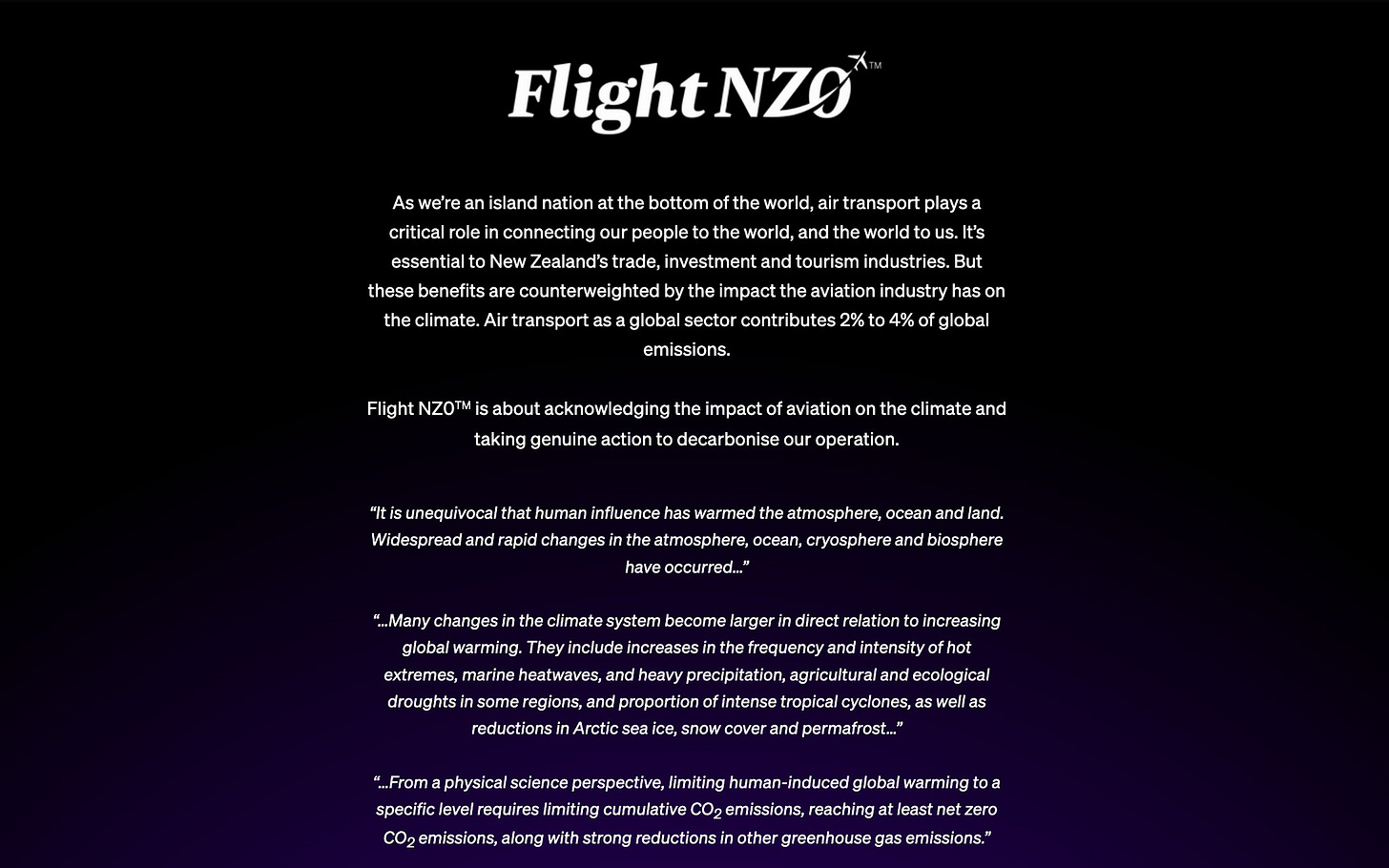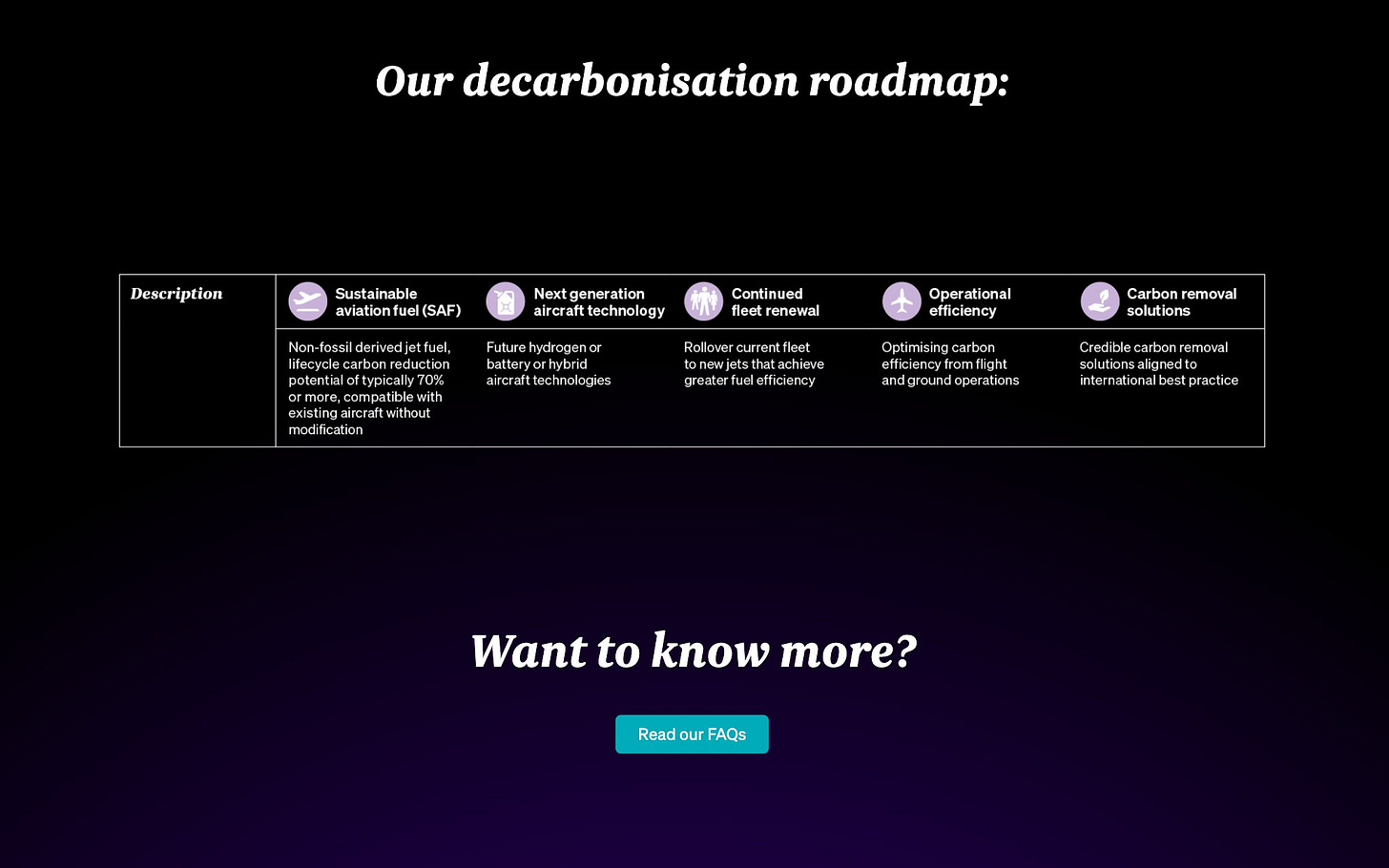First Major Airline Ditches Climate Target
Air New Zealand will be the first of many airlines to backpedal on net-zero.
This week, Air New Zealand announced it’s ditching its climate goal to achieve a 29% reduction in carbon emissions by 2030. It’s the first major airline to backpedal on their net-zero commitments.
Per the airline’s website, it nixed its 2030 “science-based carbon intensity reduction target” and no longer affiliates with Science Based Targets initiative (SBTi) citing aircraft limitations, lack of available alternative jet fuels, and insufficient “global and domestic regulatory and policy support” to encourage net-zero goals.
“In recent months, and more so in the last few weeks, it has also become apparent that potential delays to our fleet renewal plan pose an additional risk to the target’s achievability. It is possible the airline may need to retain its existing fleet for longer than planned due to global manufacturing and supply chain issues that could potentially slow the introduction of newer, more fuel-efficient aircraft into the fleet. As such and given so many levers needed to meet the target are outside our control, the decision has been made to retract the 2030 target and withdraw from the SBTi network immediately,” Air New Zealand Chief Executive Officer, Greg Foran said in a statement.
But the airline hasn’t fully abandoned net-zero just yet, as its Flight NZO campaign is still active.
“Flight NZ0 is not just a name, it’s a commitment that we will find a more sustainable way to connect with the world and reach our goal of net zero carbon emissions by the year 2050,” the airline noted. “It is clear that the climate crisis is continuing to accelerate rapidly. We are acutely aware that in order to continue to connect Kiwis to the world and the world to us, we must work hard to reach net zero carbon emissions by 2050.”
In the now-scrapped Flight NZO About Page, the airline conceded net-zero can’t ever be achieved:
There is no current technology mix that can enable the aviation industry to reduce all emissions to absolute zero by 2050. While our focus is on deep and widespread gross emissions reductions, we will also need to rely on high integrity and permanent carbon removal solutions outside our sector to achieve our goal.
SBTi, a carbon credit verification organization deeply vested in the Environmental, Social, and Governance (ESG) movement, has faced scrutiny for its selling carbon credits that “are ineffective in delivering emissions reductions.”
As I’ve previously noted here at IWF, the carbon credit market is flawed and has a low return-on-investment. It’s only valued at $2 billion–far below the projected $250 billion by 2050:
The practice inflates emission reduction promises while reduction goals lean on vague future forecasts. Carbon credits are consistently shown to be worthless, and offsetting is considered a “scam” that, ironically, invites environmental damage under the guise of going net zero.
Given diminishing support for ESG and related net-zero aims, more industries will reassess and likely ditch their decarbonization goals because they’re too costly, unreachable, and unsustainable.
As of this writing, all major U.S. airlines – including Delta, United, American, Southwest, and Alaska Airlines – are still committed to pursuing net-zero emissions by 2050. But that benchmark is likely to change or be scaled down. Why? The airline industry “is not on track” to hit 2050 net-zero goals, per the International Energy Agency (IEA).
Mark my words: Air New Zealand might be the first airline to ditch its climate goals, but it won’t be the last.
To learn more about SBTi and flawed carbon credit markets, go HERE.
What do you think? Tell me below!
-Gabriella







I expect better from a nation that has four kinds of recycling home programs.